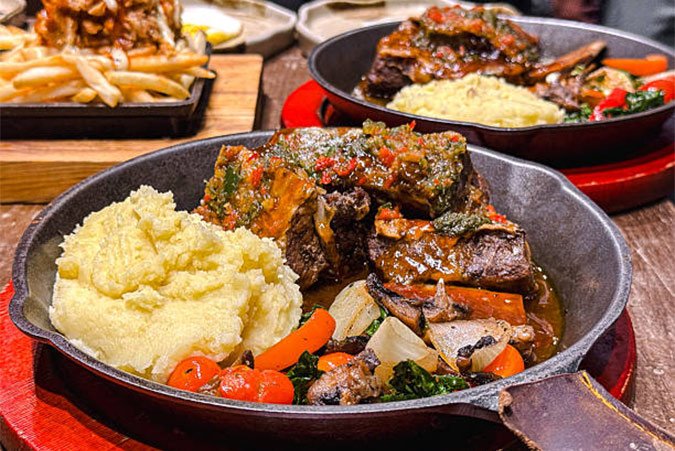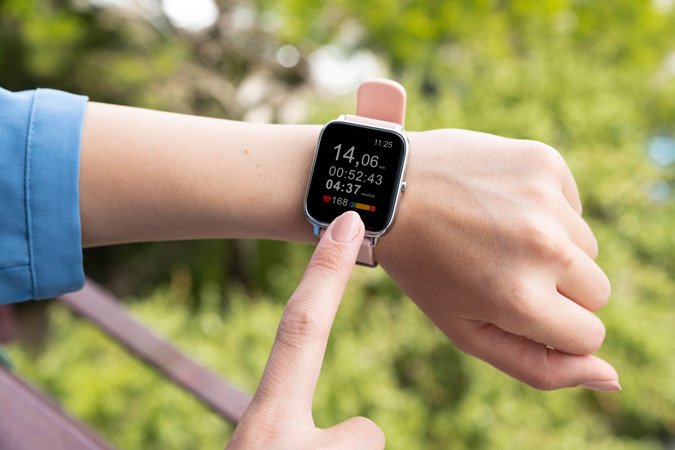Japan is celebrated around the world for its cuisine—delicate sushi, hearty bowls of ramen, sizzling yakiniku, and an endless variety of street foods. But for Muslims, whether visiting for the first time, pursuing studies, working long-term, or already settled as residents, enjoying Japan’s food culture often comes with a big question: “Where can I find halal food?”
Traditionally, Japanese cooking has relied heavily on ingredients like pork, mirin (sweet rice wine), and sake, making it challenging for Muslims to dine with peace of mind. Yet in recent years, the landscape has changed dramatically. Driven by growing Muslim tourism and the increasing number of Muslim students and professionals in Japan, more restaurants are becoming halal-certified or adopting Muslim-friendly practices. Today, from the neon-lit streets of Tokyo’s Shinjuku to the historic temples of Kyoto and the lively alleys of Osaka’s Dotonbori, you can find authentic halal dining experiences—sometimes complete with prayer spaces and staff trained in halal requirements.
This comprehensive guide is designed to help you navigate Japan’s evolving halal food scene. We’ll explore the difference between halal-certified and Muslim-friendly restaurants, highlight must-try halal Japanese dishes, and point you toward top restaurants and neighborhoods where halal dining thrives. Whether you’re a first-time visitor, a student adjusting to life in Japan, or a long-term resident looking for new dining spots, this guide will give you the confidence to savor Japan’s flavors without compromise.
Understanding Halal Food in Japan
Halal food refers to what is permissible under Islamic dietary laws: free from pork, alcohol, and non-halal meats, and prepared according to strict guidelines for slaughter, cleanliness, and handling. While some people choose a halal diet for religious reasons, others also value it for health and ethical considerations.
In Japan—where Muslims make up only a small fraction of the population—finding halal food was once a real challenge. Traditional Japanese cuisine often includes ingredients such as pork, sake (cooking alcohol), and mirin (sweet rice wine), which are not halal. Dashi, a soup stock used in countless dishes, may also contain mirin or non-halal seasonings.
However, the situation has improved dramatically in recent years. Driven by the rise in Muslim tourism and a growing number of international students and workers, many restaurants and supermarkets now offer halal-certified or Muslim-friendly options. Today, you can find halal ramen shops in Tokyo, wagyu yakiniku restaurants in Osaka, and even halal-certified sweets like yogurt, pudding, and ice cream in Ginza.
Halal vs. Muslim-Friendly
When dining in Japan, you’ll often see two terms:
- Halal Certified – Restaurants fully inspected by an official halal certification body in Japan (such as the Japan Muslim Association, Japan Halal Association, or Nippon Asia Halal Association). Certification means that all ingredients, cooking utensils, and preparation methods comply with Islamic law.
- Muslim-Friendly – Establishments that may serve pork-free and alcohol-free dishes, but might not use certified halal meat, or share kitchen facilities with non-halal items. These places are useful but require extra caution, and it’s always best to confirm with the staff.
Key Ingredients to Watch Out For in Japanese Cuisine
- Mirin (sweet rice wine) and sake – Common in sauces, broths, and marinades.
- Pork/ lard – A staple in ramen broths (like tonkotsu) and some snacks.
- Dashi – Soup stock that may include mirin or alcohol-based seasoning.
- Cross-contamination – In kitchens where halal and non-halal items are prepared together.
Tips for Eating Halal in Japan
- Do your research: Before traveling or moving, explore apps and sites like Halal Gourmet Japan, Halal Media Japan, and HappyCow to find restaurants near your destination.
- Look for certification logos: Authentic halal restaurants proudly display certification at entrances or menus.
- Check ingredients carefully: Use Google Translate or apps like Halal Japan to translate labels and scan barcodes.
- Learn simple Japanese phrases: Phrases like “kore wa haram desu ka?” (Is this haram?) or “watashi wa butaniku to osake wa taberaremasen” (I cannot eat pork or alcohol) can help clarify.
- Carry halal snacks: Instant noodles, dates, or ready-to-eat items are handy, especially in rural areas where halal options are rare.
- Visit Muslim-friendly hubs: For example, Tokyo Camii Mosque in Shibuya runs the Tokyo Camii Halal Market, offering a range of halal groceries.
With some planning and awareness, enjoying Japan’s rich culinary traditions while staying true to halal principles is absolutely possible.
Halal Japanese Foods: The Popular and The Must Try Dishes
Japanese cuisine is rich in flavor, presentation, and tradition. While many classic dishes traditionally use pork, sake, or mirin, today you can find halal-certified or Muslim-friendly versions that allow you to enjoy the authentic taste of Japan without compromise. From hearty noodle bowls to savory street food, here are the most popular and must-try halal Japanese dishes.
Halal Ramen
Ramen is one of Japan’s most beloved comfort foods. Traditionally made with pork-based broth, halal versions use flavorful chicken, beef, or seafood stocks while keeping the noodles springy and the toppings generous. Expect a steaming bowl with rich broth, sliced meat, soft-boiled egg, and vegetables—warm, hearty, and deeply satisfying.
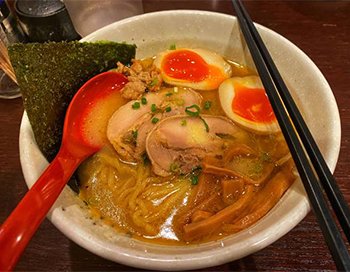
Halal Sushi & Sashimi
Sushi is the iconic Japanese dish, with bite-sized vinegared rice topped with fresh seafood or vegetables. Halal-friendly versions use alcohol-free vinegar and soy sauce, making it safe to enjoy classic nigiri, rolls, and sashimi. The freshness of the fish and the delicate balance of rice and seasoning create an unforgettable culinary experience.
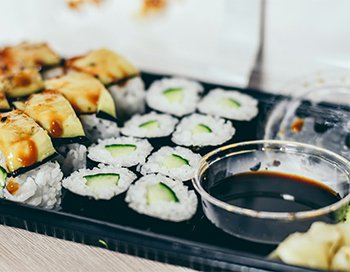
Halal Tempura
Tempura consists of seafood or vegetables lightly coated in batter and deep-fried until crisp and golden. It’s light, crunchy, and not overly oily, making it a favorite among locals and visitors alike. Paired with dipping sauce or rice, it’s both simple and elegant.
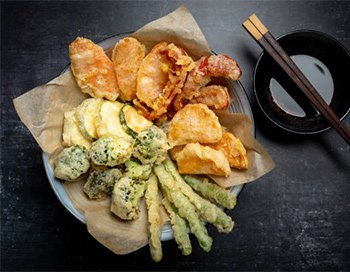
Halal Wagyu Yakiniku (Japanese BBQ)
Wagyu beef is renowned worldwide for its marbling, tenderness, and rich flavor. In halal yakiniku, premium halal-certified beef is sliced thin and grilled to perfection at the table. Each bite practically melts in your mouth, making it a must-try for meat lovers.
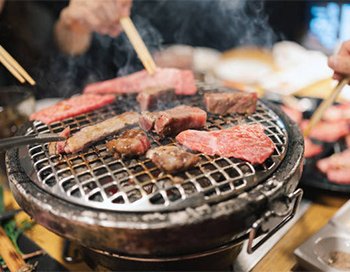
Halal Japanese Curry
Unlike spicier curries from South Asia, Japanese curry is mild, thick, and slightly sweet. It’s usually served over fluffy white rice, sometimes with a crispy cutlet (katsu). Rich, hearty, and comforting, it’s one of Japan’s favorite home-style dishes and a staple of halal dining options.
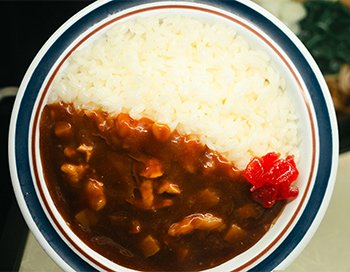
Halal Shabu-Shabu (Hotpot)
Shabu-shabu is a communal dining experience where thinly sliced meat and vegetables are cooked in simmering broth right at the table. The halal version uses certified meats and alcohol-free broth. Light yet flavorful, it’s especially enjoyable during colder months.
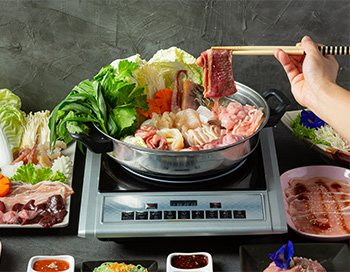
Halal Yakitori (Grilled Skewers)
Yakitori refers to skewered chicken pieces grilled over charcoal. The halal version uses certified chicken and alcohol-free marinades, offering smoky, juicy bites. Often seasoned with salt or savory sauces, it’s one of Japan’s most popular casual eats.
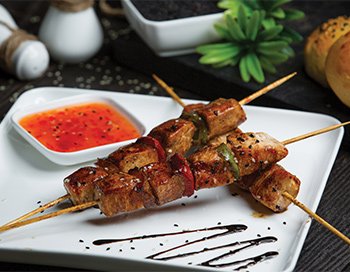
Halal Soba & Udon
Soba (buckwheat noodles) and udon (thick wheat noodles) are staples of Japanese cuisine. Served either hot in broth or cold with dipping sauce, they are simple yet versatile dishes. The noodles themselves are halal, but halal-friendly versions use sauces and broths free from mirin or sake.
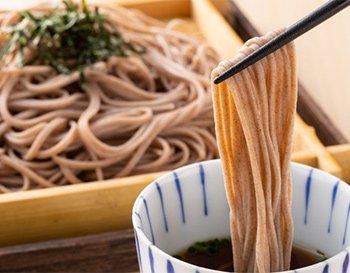
Halal Karaage (Japanese Fried Chicken)
Karaage is Japan’s version of fried chicken, typically marinated in soy sauce, garlic, and ginger before being deep-fried. The result is crispy on the outside, juicy on the inside, and bursting with flavor. Halal versions are prepared without mirin or non-halal seasonings, making them safe yet equally delicious.
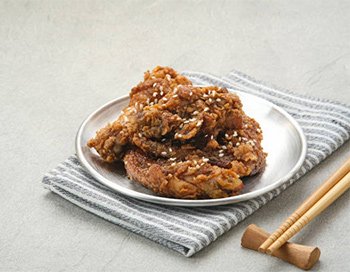
Halal Takoyaki & Okonomiyaki (Osaka Favorites)
- Takoyaki: Bite-sized, ball-shaped snacks filled with octopus, creamy inside, and topped with sauce and bonito flakes. In halal form, the fillings and sauces are adjusted while keeping the same irresistible texture.
- Okonomiyaki: Often called “Japanese savory pancakes,” these are made with batter, cabbage, and various toppings like seafood or vegetables. Halal versions replace non-permissible seasonings, offering Muslim diners a true taste of Kansai cuisine.
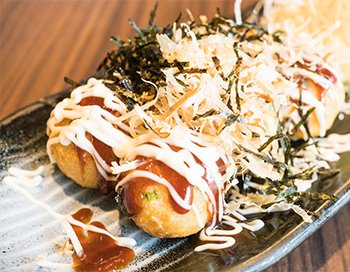
Halal Bento Boxes
Bento boxes are traditional Japanese lunch boxes, neatly packed with rice, proteins, vegetables, and side dishes. Halal-friendly bentos may include grilled fish, tamagoyaki (Japanese omelet), pickled vegetables, and rice—all prepared with halal-certified ingredients. Perfect for enjoying on the go, they showcase the variety and balance of Japanese food culture.
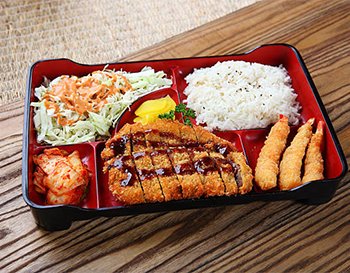
These dishes highlight how Japanese cuisine can be adapted to suit halal requirements without losing its authentic taste, tradition, or presentation. From the comforting warmth of ramen to the delicate artistry of sushi and the rich indulgence of wagyu, halal Japanese food offers a diverse and memorable culinary experience. Whether you’re a first-time visitor or a long-term resident, these must-try dishes ensure that you can explore Japan’s food culture with confidence and delight.
Top Halal Restaurants in Japan
Below is a curated list of top halal restaurants across Tokyo, Osaka, Kyoto, and Fukuoka, focusing on both Japanese and international cuisines. These establishments are either fully halal-certified or offer Muslim-friendly menus, based on recent reviews and recommendations.
Tokyo
Halal Sukiyaki Restaurant Diyafa
Diyafa specializes in authentic halal-friendly sukiyaki, a traditional Japanese dining style where premium ingredients are grilled and then enjoyed with rich broths and dipping sauces. The restaurant is renowned for serving A5-grade halal wagyu beef, ensuring both indulgence and peace of mind for Muslim diners. Alongside sukiyaki, guests can savor seasonal Japanese dishes prepared with halal-certified seasonings. With a welcoming atmosphere and modern conveniences like digital payments, Diyafa offers a safe and satisfying halal dining experience for both lunch and dinner.
Website: https://site.locaop.jp/qta2N?_src=gbp
Phone number: 03-6435-3713
Address:
2nd Floor, NO Building, 2-18-4 Shiba, Minato-ku, Tokyo 105-0014
Payment Methods: VISA, Mastercard, American Express, Diners Club, JCB, Discover, e-money, QR code payments
Google Map Location: https://maps.app.goo.gl/F8NvCkyzZLrW6MiM8
Teppanyaki Aoyama
Teppanyaki Aoyama elevates the Japanese art of teppanyaki dining, where guests can watch master chefs grill ingredients with precision and flair. The highlight here is the luxurious Miyazaki wagyu beef, one of Japan’s most prized varieties, available in premium cuts like sirloin, tenderloin, and chateaubriand. For halal wagyu options, diners are encouraged to mention dietary requirements when making a reservation. Offering both lunch and dinner, Teppanyaki Aoyama delivers a refined halal-friendly dining experience centered on quality and performance.
Website: https://site.locaop.jp/qta2N?_src=gbp
Phone number: 03-5770-6051
Address:
Japan, 〒106-0032 Tokyo, Minato City, Roppongi, 6 Chome−7−9 M’s Roppongi 2F
Payment Methods: N/A
Google Map Location: https://maps.app.goo.gl/QDmgBmsuFjsKohuk8
Yakiniku Kappo Note
Yakiniku Kappo Note offers an elegant dining experience built around a halal wagyu course menu, featuring premium A5-grade wagyu beef prepared with seasonal flair. All dishes are free from pork and alcohol, reflecting the restaurant’s commitment to quality and attention to detail. While ingredients are halal-friendly, guests should note that complete halal compliance for utensils and serving ware cannot be guaranteed. With its refined course-style presentation and sophisticated atmosphere, Yakiniku Kappo Note is ideal for a luxurious and memorable dinner.
Website: https://www.mds-fund.com/sou
Phone number: 03-6453-8125
Address:
2 Chome-9-5 Azabujuban, Minato City, Tokyo 106-0045, Japan
Payment Methods: Accepts credit cards: American Express, Mastercard, Visa
Google Map Location: https://maps.app.goo.gl/DKBtd4ohjQGojK6y7
Nikutei Futago iki Hongo Sanchome
Nikutei Futago offers a premium yakiniku experience with halal-certified cuts of Kurohana beef from Kagoshima Prefecture, prized for its exceptional marbling and flavor. Guests can enjoy an interactive meal by grilling their own meats at the table or request the staff to handle the cooking for a more relaxed experience. With a refined setting and carefully selected wagyu, this restaurant combines luxury dining with a welcoming, Muslim-friendly approach.
Website: https://en.nikutei25.com/hongousanchoume-halal
Phone number: 03-3868-2576
Address:
Japan, 〒113-0033 Tokyo, Bunkyo City, Hongo, 5 Chome−24−7 プラウドタワー本郷東大前 1F
Payment Methods: VISA, Master, AMEX, JCB, Diners
Google Map Location: https://maps.app.goo.gl/M8MQo4A7YU9eWiGx9
Halal Wagyu Yakiniku PANGA (Tokyo)
Halal Wagyu Yakiniku PANGA in Tokyo is renowned for serving premium halal-certified black wagyu sourced from Iwate, prized for its exquisite marbling, tenderness, and rich flavor. From juicy sirloin to the rare A5-grade chateaubriand, every cut offers a melt-in-your-mouth experience, sizzling beautifully on the built-in yakiniku grills that allow diners to enjoy the interactive art of Japanese barbecue. What sets PANGA apart is its commitment to strict halal preparation — from sourcing whole cattle to processing under certified practices — ensuring Muslim diners can savor authentic wagyu without compromise while enjoying a dining experience that harmonizes Japanese culinary tradition with cultural respect.
Website: http://www.wagyu-panga.jp/
Phone number: 03-3839-8929
Address:
3 Chome-27-9 Taito, Taito City, Tokyo 110-0016, Japan
Payment Methods: VISA, Master, Amex, DINERS, JCB, You can use Paypay, LINEpay
Google Map Location: https://maps.app.goo.gl/6jVjn7VH3g6zWw1T9
Osaka
Halal Ramen Naniwaya
Halal Ramen Naniwaya in Osaka specializes in authentic Japanese ramen made with handmade noodles, fresh domestic ingredients, and its signature sauce and dashi. The highlight of the menu is the halal wagyu beef dishes, including the wagyu yakiniku bowl and yakiniku plate, both of which are local favorites and often sell out quickly. As a fully halal-certified restaurant, Naniwaya does not serve alcohol or pork, making it a reliable choice for Muslim diners. The restaurant also provides a prayer room for guests and accepts reservations for larger groups, ensuring a comfortable and welcoming dining experience.
Website: https://naniwaya-osaka.com/en/
Phone number: +81 6-6926-8888
Address:
〒542-0086
2-7-22 Nishi-Shinsaibashi, Chuo Ward, Osaka City, Osaka
Payment Methods: Digital Payments, Accepts Credit Cards
Google Map Location: https://maps.app.goo.gl/uCxzY7BvdeUwWP5m6
Wagyu Sukiyaki GYUMON/Osaka Halal
Wagyu Sukiyaki GYUMON brings the rich tradition of Japanese cuisine to Muslim-friendly dining, specializing in premium A5-grade halal wagyu beef with an exceptional Beef Marbling Standard (BMS) of 12, a rarity even in Japan. Established by the Gyumon Group, pioneers of halal wagyu dining since 2007, the restaurant is committed to serving dishes like sukiyaki, yakiniku, ramen, and gyukatsu—all prepared under strict halal guidelines with certified ingredients and methods. With its blend of Japanese craftsmanship and Muslim hospitality, GYUMON offers an unforgettable wagyu experience rooted in quality, authenticity, and warmth.
Website: https://gyumon-group.com/en
Phone number: 06-4300-3471
Address:
〒542-0083
1st Floor, Shin Nihon Tatamiya-cho Building, 2-8-20 Higashi Shinsaibashi,
Chuo-ku, Osaka-shi, Osaka
Payment Methods: Digital Payments, Accepts Credit Cards
Google Map Location: https://maps.app.goo.gl/hrPjdLSdC8fWuYYb7
Kyoto
Halal Ramen Ayam Ya Karasuma Kyoto
Halal Ramen Ayam-Ya Karasuma in Kyoto offers Muslim travelers the chance to savor authentic Japanese ramen in a warm, serene setting. Known for its halal-certified menu, the restaurant specializes in comforting bowls like halal chicken ramen, featuring tender chicken slices, springy noodles, and a rich, savory broth crafted with care. With its simple Japanese décor, inviting atmosphere, and commitment to using halal-certified ingredients in collaboration with local authorities, Ayam-Ya delivers both peace of mind and a true taste of Kyoto’s culinary charm.
Website: https://www.facebook.com/Ayamya.karasuma.kyoto
Phone number: +81 75-708-5666
Address:
470 Kannondocho Shimmachidori Shijo Agaru Higashi Iru, Nakagyo-ku 1f, Kyoto 604-8222 Kyoto Prefecture
Payment Methods: Cash Only
Google Map Location: https://maps.app.goo.gl/xE9F9A7kgGUjeRmw6
Arashiyama Yoshiya Oku No Niwa
Arashiyama Yoshiya Oku No Niwa is a traditional Japanese restaurant located near the famous Togetsukyo Bridge in Kyoto, offering a dining experience that reflects the seasonal elegance of the Arashiyama area. The restaurant serves a wide variety of authentic Japanese dishes with options for halal, vegan, and gluten-free diets, making it an inclusive choice for diverse visitors. With its blend of cultural atmosphere and carefully prepared meals, Yoshiya provides guests with both the flavors and spirit of Kyoto in a welcoming setting.
Website: https://yoshiya-kyoto.jp/en/okunoniwa
Phone number: (075)871-0448
Address:
31 Sagatenryuji Tsukurimichicho, Ukyo Ward, Kyoto, 616-8384, Japan
Payment Methods: Accepts credit cards: American Express, Mastercard, Visa
Google Map Location: https://maps.app.goo.gl/PosMc5Q7aFpDVB1i9
Arash’s Kitchen
Arash’s Kitchen in Kyoto is a vibrant fusion restaurant that brings together the rich flavors of Iranian, Indian, Turkish, and Arabic cuisines, offering a wide variety of halal, vegetarian, vegan, and gluten-free options. From aromatic kebabs and flavorful curries to fresh Middle Eastern salads and indulgent desserts, the menu is designed to cater to diverse tastes while ensuring authenticity. Recognized among the top 10% of restaurants worldwide on TripAdvisor (2025), Arash’s Kitchen combines delicious food with a warm, welcoming atmosphere, making it a perfect spot for casual meals, family gatherings, or special celebrations.
Website: https://www.arashskitchen.com/
Phone number: +81 80 5366 5573, 075-746-4769
Address:
〒606-8392 2nd floor, Sun Plaza, 16-4 Shogoin Sannocho, Sakyo Ward, Kyoto City, Kyoto Prefecture
Payment Methods: Accepts credit cards: American Express, Mastercard, Visa
Google Map Location: https://maps.app.goo.gl/98eWuPxmLoTyGzDQA
FAQs about Halal Food in Japan
1. Is halal food easily available in Japan?
Yes, halal food is becoming more accessible in Japan, especially in major cities like Tokyo, Osaka, and Kyoto. Many restaurants are now halal-certified or offer Muslim-friendly menus.
2. Do Japanese halal restaurants have official certification?
Most halal restaurants in Japan work with local Islamic organizations and halal authorities to obtain certification. It’s always a good idea to check for the certification mark or ask the staff if you are unsure.
3. Are there prayer rooms in halal restaurants in Japan?
Some halal restaurants, especially those catering to international travelers, provide prayer rooms for Muslim guests. However, availability may vary, so it’s best to confirm in advance.
4. Is wagyu beef available in halal form in Japan?
Yes, several restaurants in Japan serve halal wagyu beef, processed according to Islamic guidelines. Tokyo and Osaka, in particular, are known for offering high-quality halal wagyu yakiniku and sukiyaki.
5. Do halal restaurants in Japan serve alcohol?
Most halal-certified restaurants in Japan avoid serving alcohol. However, some Muslim-friendly or partially halal establishments may still serve it, so be sure to check before dining.
6. Can I find vegetarian and vegan options in halal restaurants?
Yes, many halal restaurants in Japan also offer vegetarian, vegan, and gluten-free options, making them suitable for diverse dietary needs.
7. Do I need to make a reservation at halal restaurants in Japan?
Popular halal restaurants, especially wagyu yakiniku spots in Tokyo and Osaka, often require reservations due to high demand. For ramen shops and casual dining, walk-ins are usually accepted.
8. Is KFC halal in Japan?
No, KFC in Japan is not halal.
Conclusion
Exploring Japan’s culinary scene is a journey in itself, and for Muslim travelers, the growing number of halal-certified restaurants makes it easier than ever to enjoy authentic Japanese flavors with peace of mind. From sizzling wagyu yakiniku in Tokyo to hearty ramen in Osaka and traditional multi-course meals in Kyoto, these restaurants showcase the country’s culinary diversity while respecting halal traditions. Whether you’re craving comfort food or a fine dining experience, Japan now offers halal-friendly options that celebrate both taste and inclusivity. Wherever your travels take you, you can savor Japan’s world-class cuisine while staying true to your values.
Whether you’re visiting Japan for the first or third time, or living there, staying updated on what options are available to Muslim travelers and residents is always good. If you are looking for mosques nearby in Japan, you can check our article on Mosques in Japan in 47 Prefectures: A Comprehensive List with Details on the Sakuron Japan website.
– Our editorial team reviewed the article and approved it for publication according to our policy.

